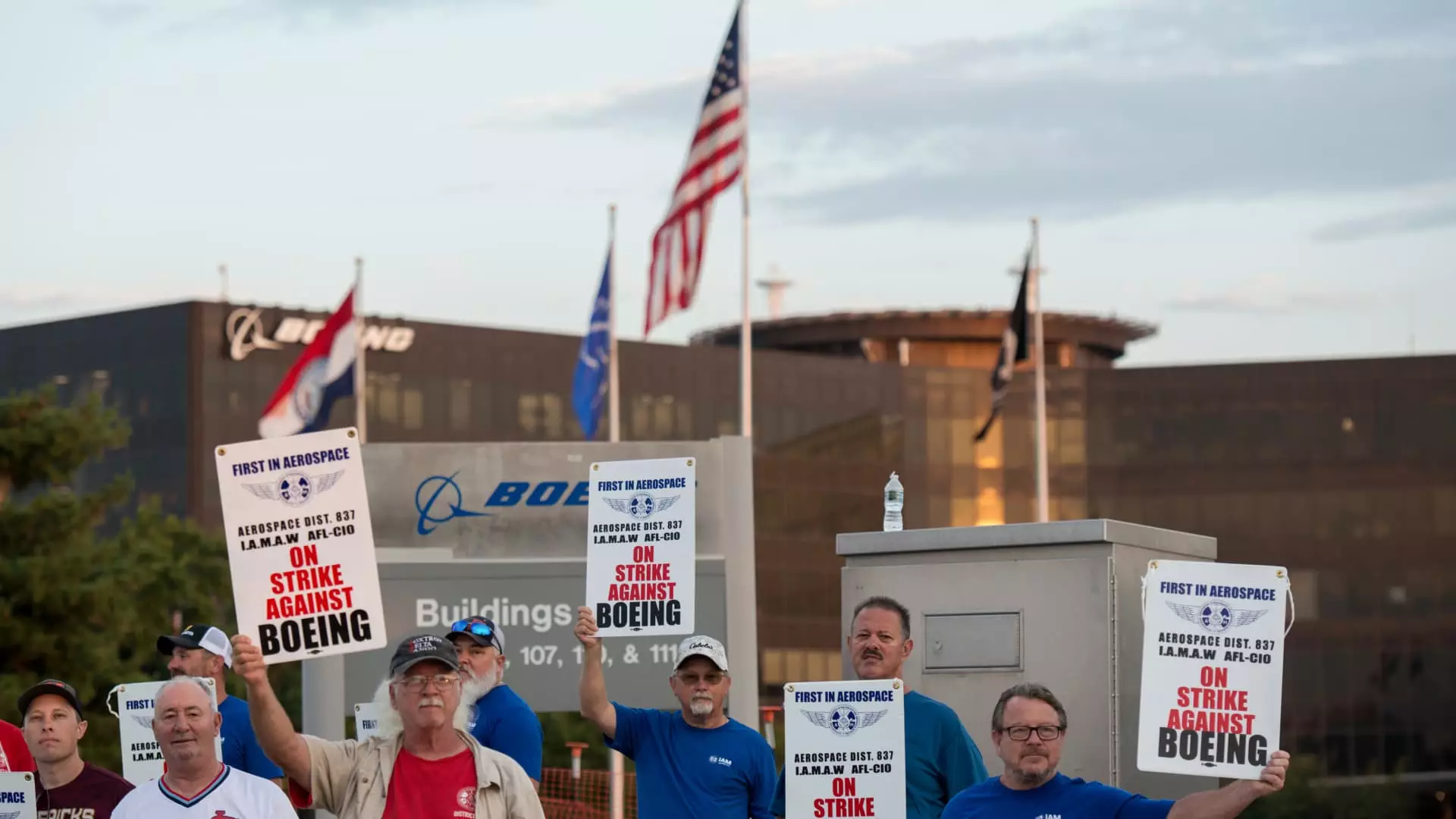In a striking display of worker solidarity and determination, approximately 3,200 employees within Boeing’s defense division embarked on their first major strike in nearly thirty years. This bold move underscores a broader shift in labor dynamics, revealing that even giant corporations like Boeing are not immune to worker-led pushes for fair treatment and acknowledgment. The defense unit, responsible for maintaining critical military assets like F-15 fighters and missile systems, plays an essential role in national security. Yet, even vital roles don’t necessarily guarantee recognition or fair compensation, which fuels employee frustration and activism.
The workers’ rejection of Boeing’s latest contract offer highlights a crucial tension. The company’s proposals — a 20% wage increase, a $5,000 ratification bonus, and other benefits — initially seemed generous. However, union representatives argued that the offer did not sufficiently address disparities, especially concerning higher-end wages and retirement benefits. The union’s stance implies a belief that diligent workers should be rewarded not merely with token gestures but with tangible improvements that recognize their expertise, labor intensity, and importance to the defense infrastructure. This refusal to accept the status quo epitomizes a broader pursuit for dignity and respect within corporate hierarchies.
The Unfolding Power Dynamics: Workers versus Management
Historically, strikes in highly specialized industries like defense manufacturing are rare and impactful, given the enormous strategic importance of the work involved. The last strike in Boeing’s defense sector was in 1996, making this current industrial action a significant event. The union leadership asserts that their members seek contracts that mirror their skills and dedication, emphasizing their indispensable contribution to national security.
Meanwhile, Boeing’s executive leadership, including CEO Kelly Ortberg, publicly downplayed concerns, suggesting confidence in their ability to manage potential disruptions. His remarks reflect a corporate mindset that perhaps underestimates the resolve of workers to fight for equitable treatment. Such dismissiveness can backfire, as it risks alienating the very workforce that sustains the company’s critical operations. It also indicates a broader tendency among some corporations to prioritize short-term financial considerations over long-term employee loyalty and morale.
The recent history of work stoppages at Boeing reveals a pattern: economic hardship and labor dissatisfaction sometimes culminate in strikes that reshape contract negotiations. Last year’s bigger walkout involving over 32,000 workers in the commercial sector ended with a substantial 38% raise over four years. This outcome suggests that persistent resistance can lead to meaningful concessions, reinforcing the idea that workers’ collective action remains a potent force capable of forcing corporations to reckon with their demands.
The Broader Implication: Worker Power and Corporate Accountability
The current strike at Boeing’s defense unit isn’t merely about wages or benefits; it’s a statement of workers’ insistence on dignity and fairness in an era marked by growing income inequality and corporate consolidation. Employees are challenging the narrative that their expertise and dedication should be taken for granted, especially considering their role in safeguarding national interests.
This episode encapsulates a fundamental truth: workers possess substantial leverage when they unite, especially in specialized sectors crucial to national security. Their willingness to strike sends a powerful message that fairness and respect must be prioritized, regardless of the operational importance of their work. As organizations like Boeing face the rising tide of worker activism, their responses will likely shape labor relations for years to come.
The strike at Boeing’s defense division exemplifies a pivotal moment where worker agency confronts corporate dominance. It underscores the importance of equitable treatment, meaningful negotiations, and the enduring strength of organized labor in holding powerful institutions accountable.


Leave a Reply